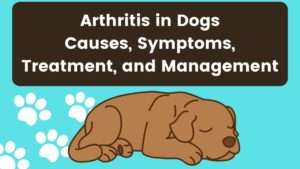Are you curious about whether your furry friend can indulge in apricots? The question of whether dogs can eat apricots is a common one among pet owners. While these fruits may seem harmless and even nutritious to us, it’s essential to delve deeper into the topic to ensure the safety and well-being of our canine companions.
In this comprehensive guide, we’ll explore everything you need to know about dogs and apricots. From the potential health benefits to the risks involved, we’ll cover it all to help you make informed decisions about your pet’s diet.
Contents Overview
What is Apricots
Apricots are small, round fruits with a velvety skin and a sweet, tangy flavor. They belong to the same family as peaches and plums and are prized for their juicy flesh and nutritional benefits. Apricots are rich in vitamins A and C, fiber, and antioxidants, making them a nutritious addition to various dishes and snacks. They come in different varieties, ranging from golden to deep orange in color, and can be enjoyed fresh, dried, or used in cooking and baking recipes.
Nutritional Value of Apricots
Apricots are packed with essential nutrients, including vitamins A and C, which support immune function and promote healthy skin and eyes. They are also a good source of dietary fiber, aiding in digestion and promoting gut health. Additionally, apricots contain antioxidants that help protect cells from damage caused by free radicals. With their delicious taste and nutritional benefits, apricots are a nutritious choice for adding to your diet.
Can Dogs Eat Apricots?
Yes, dogs can eat apricots in moderation, but precautions must be taken. While apricots offer nutritional benefits such as vitamins A and C, along with fiber, they also pose risks to dogs. The pits of apricots contain cyanide, which is toxic to dogs and can lead to poisoning if ingested. Additionally, apricots can present a choking hazard, especially for small dogs, and may cause digestive issues such as diarrhea or vomiting in some pets. To safely feed apricots to your dog, always remove the pits, offer them in moderation, and monitor for any adverse reactions.
Potential Benefits of Apricots to Dogs
- Improves Digestive Health:
- The fiber content in apricots can aid digestion and regulate bowel movements in dogs, helping to prevent constipation and promote overall gastrointestinal health.
- Supports Immune Function:
- Apricots contain vitamin C, which can bolster the immune system in dogs, helping them fight off infections and illnesses.
- Promotes Eye Health:
- Vitamin A, found in apricots, plays a crucial role in maintaining eye health in dogs, contributing to optimal vision and overall ocular function.
- Provides Hydration:
- Apricots have high water content, which can contribute to your dog’s hydration, especially during hot weather or after physical activity.
Potential Risks and Precautions of Feeding Apricots to Dogs
- Cyanide Poisoning:
- The pits and seeds of apricots contain amygdalin, a compound that can release cyanide when metabolized. Cyanide poisoning can be fatal to dogs if ingested in large quantities.
- Digestive Upset:
- Apricots contain natural sugars and fiber, which can cause gastrointestinal distress in dogs if consumed in excessive amounts. Digestive upset may manifest as diarrhea, vomiting, or abdominal discomfort.
- Choking Hazard:
- The pits and seeds of apricots pose a choking hazard to dogs, especially small breeds or those prone to gulping food without chewing thoroughly. Ingesting large pieces of fruit or pits can lead to choking or intestinal blockages.
- Allergic Reactions:
- While rare, some dogs may be allergic to apricots or develop adverse reactions after consuming them. Signs of an allergic reaction may include itching, swelling, hives, or difficulty breathing.
Precautions
- Remove Pits and Seeds:
- Always remove pits and seeds from apricots before feeding them to your dog. Discard pits securely to prevent accidental ingestion by curious pets.
- Moderation is Key:
- Introduce apricots to your dog’s diet in moderation. Limit the amount to small, occasional treats to avoid potential digestive upset or cyanide poisoning.
- Monitor for Adverse Reactions:
- Watch for any signs of allergic reactions or digestive discomfort after feeding apricots to your dog. If your pet exhibits unusual symptoms, discontinue feeding apricots and consult a veterinarian promptly.
- Offer Fresh, Ripe Apricots:
- Choose fresh, ripe apricots for your dog, as they are easier to digest and contain higher nutrient levels. Avoid dried apricots, as they are more concentrated in sugars and may pose a higher risk of digestive upset.
- Cut into Small Pieces:
- Cut apricots into small, bite-sized pieces to reduce the risk of choking and aid digestion. Supervise your dog while they enjoy their apricot treat to ensure they chew it thoroughly.
Safe Ways to Feed Apricots to Dogs
- Remove Pits and Seeds:
- Before serving apricots to your dog, always remove the pits and seeds. These parts contain cyanide, which can be toxic to dogs if ingested. Discard the pits securely to prevent accidental ingestion.
- Choose Fresh, Ripe Apricots:
- Opt for fresh, ripe apricots when feeding your dog. Ripe apricots are softer and easier to chew and digest. Avoid feeding dried apricots, as they are higher in sugar content and may pose a greater risk of digestive upset.
- Cut into Small, Bite-sized Pieces:
- Cut apricots into small, bite-sized pieces before offering them to your dog. This reduces the risk of choking and makes it easier for your pet to chew and digest the fruit.
- Serve in Moderation:
- While apricots can be a tasty treat for dogs, it’s essential to offer them in moderation. Too much fruit can lead to digestive upset or excessive intake of sugars. Limit apricots to occasional treats as part of a balanced diet.
- Supervise During Consumption:
- Supervise your dog while they enjoy their apricot treat to ensure they eat it safely. Monitor for any signs of choking or difficulty swallowing, especially in smaller breeds or dogs prone to gulping their food.
- Introduce Gradually:
- If your dog has never tried apricots before, introduce them gradually to gauge their tolerance and any potential adverse reactions. Start with a small piece and observe how your dog responds before offering more.
- Consult with Your Veterinarian:
- Before incorporating apricots into your dog’s diet, consult with your veterinarian, especially if your pet has any underlying health conditions or dietary restrictions. Your vet can provide personalized advice based on your dog’s individual needs.
When to Avoid Apricots to Dog
- During Training Sessions: Avoid feeding apricots to your dog during training sessions, as the high sugar content may lead to distraction or hyperactivity.
- After Surgery: Refrain from offering apricots to your dog after surgery, as the fruit’s fiber content could cause digestive discomfort or interfere with healing.
- With Known Allergies: If your dog has known allergies to fruits or specific ingredients, avoid feeding apricots to prevent potential allergic reactions.
- For Dogs with Diabetes: Apricots are high in natural sugars, making them unsuitable for dogs with diabetes or those on a low-sugar diet.
- With Digestive Issues: If your dog experiences chronic digestive issues, such as diarrhea or vomiting, avoid feeding apricots, as they may exacerbate these symptoms.
- Before Exercise: Avoid giving apricots to your dog immediately before exercise, as the fruit’s fiber content may cause gastrointestinal discomfort during physical activity.
- In Excessive Heat: During hot weather, avoid feeding apricots to your dog, as the fruit’s high water content may contribute to diarrhea or dehydration.
Safe and Suitable Alternatives of Apricots for Dogs
When looking for safe and suitable alternatives to apricots for dogs, consider options such as:
- Blueberries: Packed with antioxidants and low in calories, blueberries make a delicious and nutritious treat for dogs.
- Bananas: Rich in potassium and easily digestible, bananas are a favorite among many dogs.
- Apples: Crunchy and low in fat, apples are a source of vitamins and fiber, benefiting your dog’s dental health and digestion.
- Carrots: Crunchy and low in calories, carrots are excellent for promoting dental health and providing a satisfying chew.
- Watermelon: High in water content and vitamins, watermelon can be a refreshing and hydrating snack for dogs, especially during hot weather.
Bottom Line
In conclusion, while dogs can eat apricots in moderation, it’s essential to be aware of the potential risks involved. While apricots offer nutritional benefits such as vitamins A and C and fiber, they also contain pits that can be toxic to dogs and pose a choking hazard. To ensure your dog’s safety, always remove the pit before offering apricots and monitor for any adverse reactions. If you’re unsure or concerned about the risks, consider alternative treats or consult with your veterinarian for personalized advice. With proper caution and moderation, you can safely incorporate apricots into your dog’s diet as an occasional treat.




































+ There are no comments
Add yours